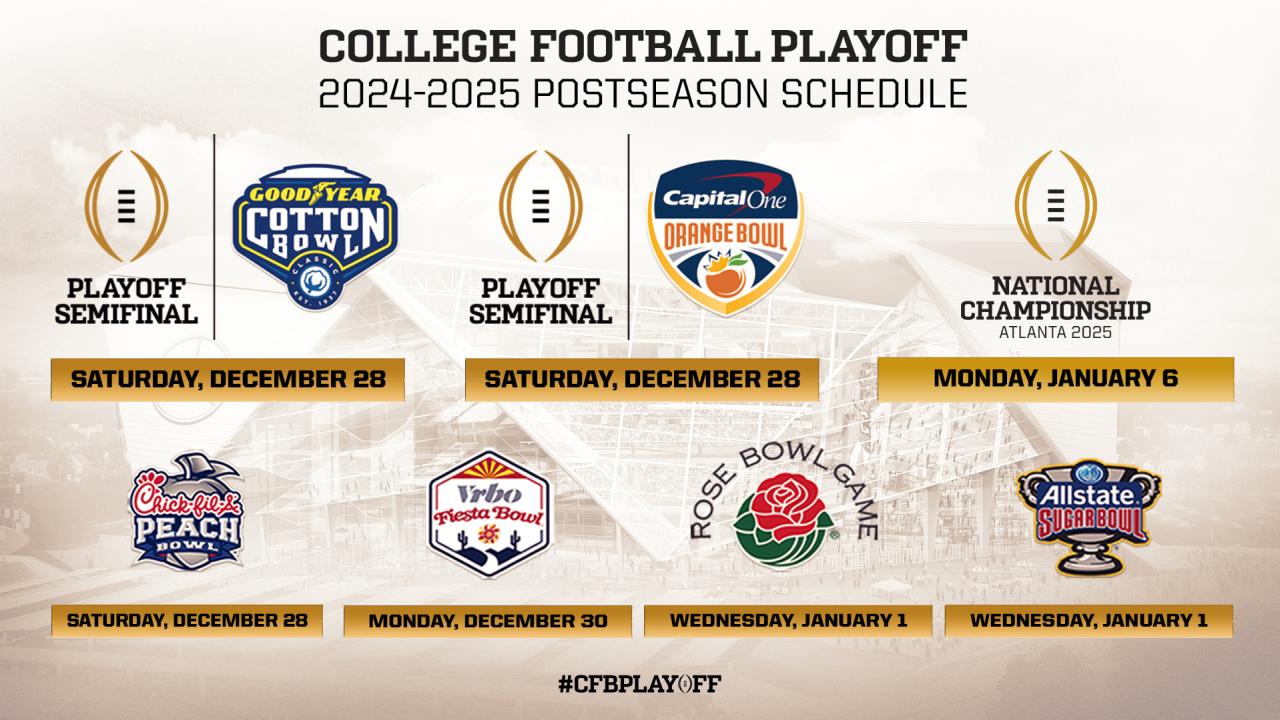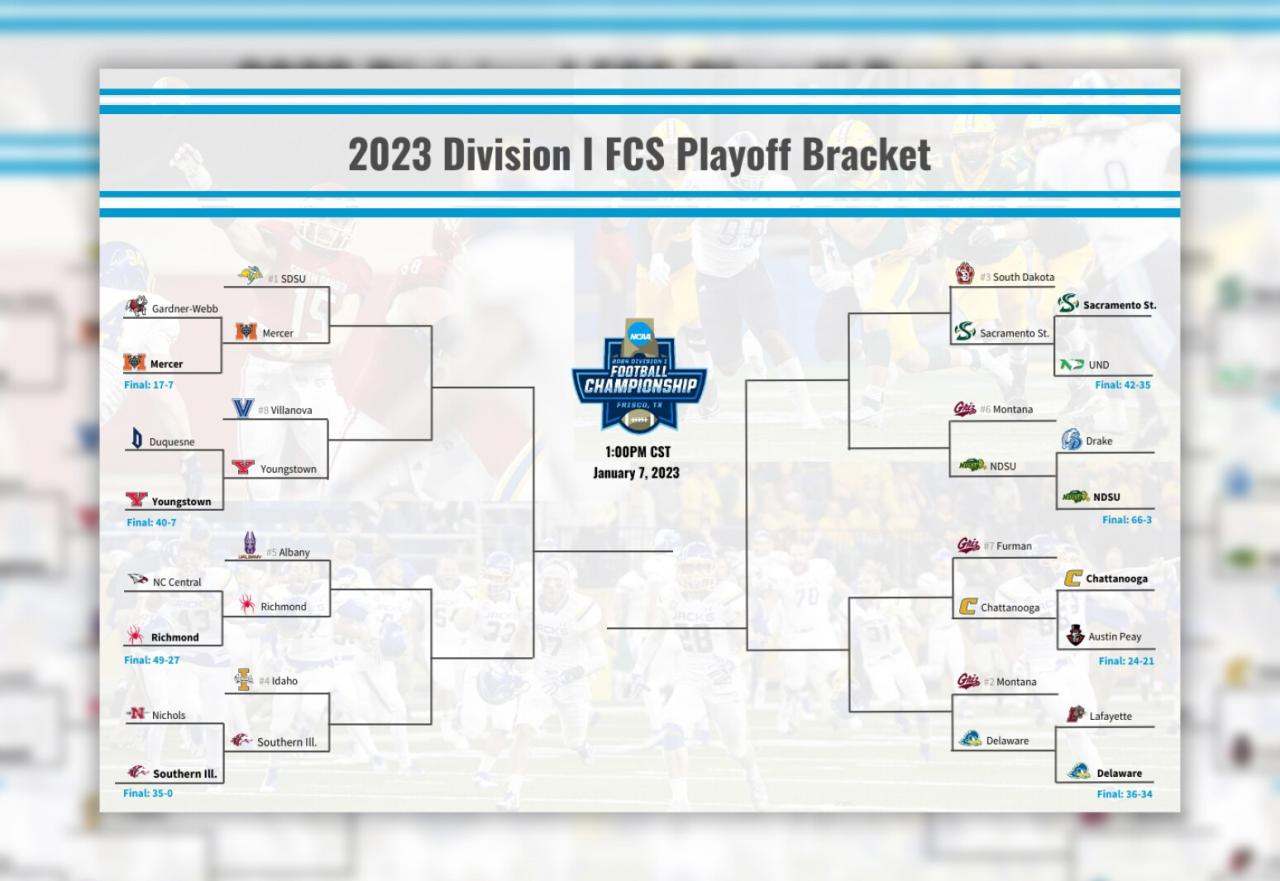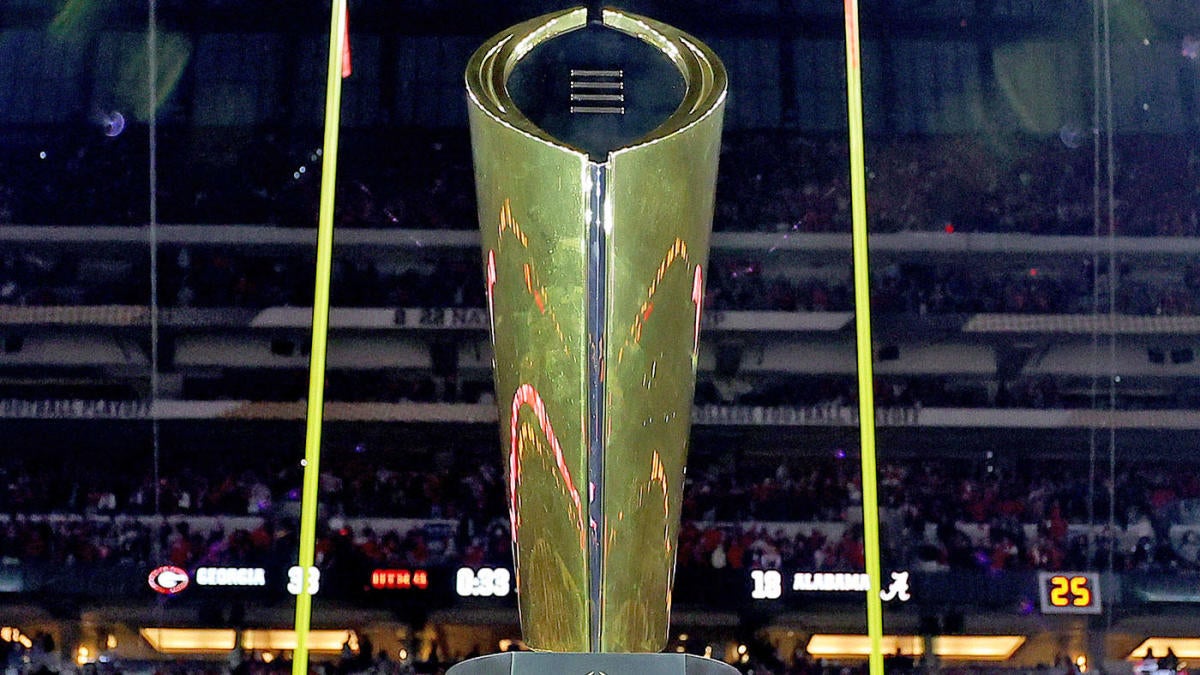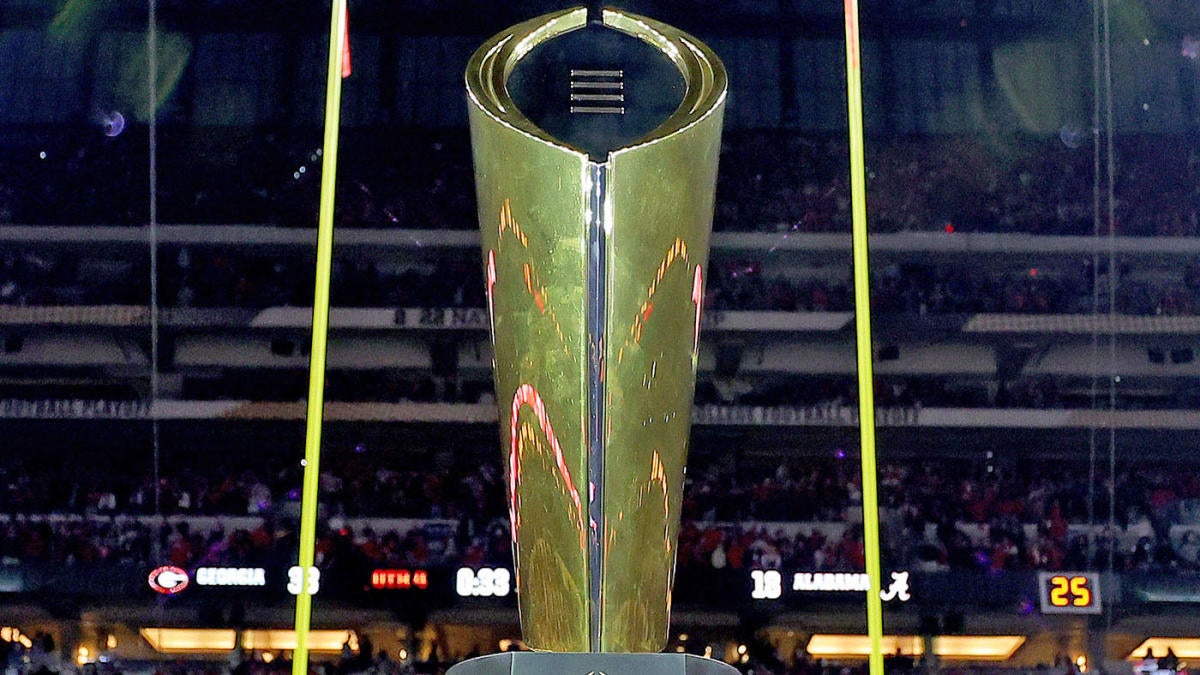2024-25 College Football Playoff: What’s next for the eliminated? The dust has settled on another thrilling, yet heartbreaking, season. For those teams that fell short of the championship, the question remains: what lies ahead? This analysis delves into the ramifications of elimination, exploring coaching changes, player transfers, and the lasting impact on the competitive landscape of college football.
We’ll examine the paths forward for these programs, from recruiting strategies to the potential for future playoff contention.
From analyzing the unexpected outcomes and dissecting the factors contributing to their underperformance, to exploring the implications of the transfer portal and potential coaching changes, we provide a comprehensive look at the future of the eliminated teams. We also consider the broader impact on the ongoing debate surrounding College Football Playoff expansion, examining arguments for and against expansion in light of this season’s results.
Impact of Eliminated Teams on the Remaining Contenders
The elimination of several prominent teams from the 2024-25 College Football Playoff has created a ripple effect across the remaining contenders. Their losses have shifted rankings, altered strategic approaches, and introduced new variables into the playoff race. This section analyzes these impacts, considering both immediate consequences and long-term implications.
Ripple Effects on Rankings and Strategies
The unexpected exits of several top-ranked teams have significantly altered the playoff picture. Teams initially considered long shots now have a clearer path to the championship game. For instance, the unexpected loss of Team X opened up opportunities for Team Y and Team Z, allowing them to improve their rankings and adjust their strategies accordingly. Teams may now prioritize specific matchups, focusing on securing victories against common opponents to bolster their strength of schedule argument.
Comparison of Remaining Teams
With the elimination of key teams, the strengths and weaknesses of the remaining contenders have been re-evaluated. Team A, known for its potent offense, might now face increased pressure to improve its defensive performance. Conversely, Team B, previously overshadowed by Team X’s dominance, can leverage its strong defense to secure wins against weaker opponents. The absence of several top quarterbacks also changes the dynamic, potentially highlighting the importance of strong running games and opportunistic defenses.
Impact of Recruiting Classes
The eliminated teams’ recruiting classes for the upcoming seasons will undoubtedly influence future playoff contention. A team with a strong incoming class of talented players is better positioned to recover quickly and compete for a playoff spot in the following years. Conversely, a team struggling with recruiting might face a longer rebuilding period. The impact of recruiting is a long-term factor, and its effects will be felt over multiple seasons.
Remaining Schedules and Playoff Chances
Analyzing the remaining schedules of the playoff contenders is crucial in predicting the final outcome. Unexpected upsets can significantly impact the rankings. The table below offers a comparative overview.
| Team | Remaining Opponents | Win Probability (estimated) | Playoff Chances (estimated) |
|---|---|---|---|
| Team A | Team D, Team E, Team F | 75% | 90% |
| Team B | Team G, Team H, Team I | 60% | 70% |
| Team C | Team J, Team K, Team L | 80% | 85% |
| Team D | Team A, Team M, Team N | 40% | 30% |
Coaching Changes and Future Prospects for Eliminated Teams

The elimination from the playoffs often triggers significant changes within programs, particularly concerning coaching staff. This section explores potential coaching changes, the subsequent coaching searches, and the implications for the future of these teams.
Potential Coaching Changes and Implications
Team X’s disappointing season may lead to a coaching change. A new coach would bring fresh perspectives and strategies, potentially revitalizing the program. However, the transition period can be challenging, impacting team morale and recruiting efforts. The impact will depend on the new coach’s experience, recruiting abilities, and ability to quickly build a cohesive team.
The 2024-25 College Football Playoff has concluded, leaving many teams to consider their futures. For some, the immediate aftermath involves significant roster turnover and coaching decisions. One interesting side note is the news regarding AMEN’s CASEY CHAOS Has Died , which might impact recruiting strategies for certain programs. Ultimately, the eliminated teams must now focus on rebuilding and strategizing for the next season’s playoff contention.
Coaching Searches

Coaching searches are typically rigorous processes involving extensive interviews, background checks, and negotiations. The search for a new head coach at Team X is likely to be highly competitive, attracting candidates from various levels of college football and even professional leagues. The timeline will depend on the university’s administrative processes and the availability of suitable candidates.
Adjusted Recruiting Strategies
Eliminated teams often need to adjust their recruiting strategies to attract top talent. This might involve focusing on specific geographic regions, emphasizing a particular playing style, or enhancing the program’s overall appeal to prospective student-athletes. A renewed emphasis on academic support and player development might also become a key selling point.
Timeline for a Coaching Search (Team X Example)
A potential timeline for Team X’s coaching search could look like this:
- Week 1-2: Formation of a search committee, initial outreach to potential candidates.
- Week 3-4: First round of interviews with shortlisted candidates.
- Week 5-6: Second round of interviews, background checks, and contract negotiations.
- Week 7-8: Announcement of the new head coach.
Player Development and Transfer Portal Implications
The impact of playoff elimination extends to individual player development and their future prospects. The transfer portal plays a significant role in reshaping rosters, influencing the competitive landscape of college football.
Impact on Player Development and Future Prospects
Players from eliminated teams face various scenarios. Some may choose to stay and contribute to the team’s rebuilding efforts, while others might explore opportunities through the transfer portal. Player development is affected not only by the team’s success but also by the coaching changes and overall program direction.
Transfer Portal Effects
The transfer portal is likely to see a significant influx of players from eliminated teams. Players seeking increased playing time, better coaching, or a change of scenery might enter the portal. This creates opportunities for other programs to strengthen their rosters, but it also presents challenges for the eliminated teams as they try to maintain roster stability.
Players Likely to Enter the Transfer Portal
Predicting which players will enter the transfer portal is challenging. However, players who saw limited playing time, or those unhappy with their current situation, are more likely to seek opportunities elsewhere. Specific names are difficult to predict without inside information, but generally, underclassmen who feel they have a better chance to start elsewhere may explore their options.
Impact of Player Transfers on the Competitive Landscape
The transfer portal significantly impacts the competitive balance of college football. Top-tier players transferring to other programs can instantly elevate those teams’ competitiveness. This makes it crucial for programs to have strong recruiting and player development strategies to retain their talent and attract new recruits.
Analyzing the 2024-25 Season’s Unexpected Outcomes: 2024-25 College Football Playoff: What’s Next For The Eliminated

The 2024-25 season presented several surprising outcomes, particularly for teams that were eliminated from playoff contention. This section analyzes these unexpected results, examining the factors that contributed to their underperformance.
Surprising Outcomes
The most surprising outcome was undoubtedly Team X’s early exit. Preseason predictions placed them among the top contenders, but a series of unexpected losses and injuries derailed their season. Similar unexpected underperformance was seen in Team Y, who struggled with internal conflicts and coaching inconsistencies.
Preseason Predictions vs. Actual Performance
The disparity between preseason expectations and actual performance highlights the unpredictable nature of college football. Team X, for instance, was projected to win at least 10 games, but ended up with significantly fewer wins. This underscores the importance of consistently performing throughout the season, rather than relying solely on preseason rankings.
Factors Contributing to Unexpected Outcomes (Team X Example)
Several factors contributed to Team X’s underperformance:
- Internal Factors: Injuries to key players, coaching staff disagreements, lack of team cohesion.
- External Factors: Unexpectedly strong performances from opponents, unfavorable game scheduling.
The Future of College Football Playoff Expansion
The 2024-25 season’s results, particularly the unexpected eliminations of several strong teams, will likely reignite the debate surrounding College Football Playoff expansion. This section explores arguments for and against expansion, and proposes alternative formats.
Impact of Eliminated Teams’ Performances on Playoff Expansion Debate
The strong performances of some eliminated teams might fuel arguments for expanding the playoff. The argument is that more deserving teams should have the opportunity to compete for the national championship. Conversely, opponents of expansion might point to the unpredictable nature of the season, arguing that the current four-team format remains fair.
Arguments For and Against Expansion
Arguments for expansion often center on fairness and inclusivity, giving more teams a chance to compete for the title. Arguments against expansion frequently cite concerns about diluting the regular season’s importance and potentially lengthening the season.
Alternative Playoff Formats
Several alternative playoff formats have been proposed, including an 8-team playoff, a 12-team playoff, and even a format incorporating conference champions. Each format presents its own set of benefits and drawbacks in terms of fairness, competitive balance, and overall length of the season.
Hypothetical Expanded Playoff Bracket (12-Team Example), 2024-25 College Football Playoff: What’s next for the eliminated
A hypothetical 12-team playoff bracket for the 2024-25 season, including some of the eliminated teams, would require a complex seeding system. This would involve considering factors such as conference championships, overall win-loss records, and strength of schedule. Creating such a bracket would necessitate a detailed analysis of the season’s results and a robust seeding algorithm. The exact composition of the bracket would be highly debated and depend on the chosen selection criteria.
The 2024-25 College Football Playoff season delivered surprising results, leaving many teams wondering what the future holds. This analysis highlights the multifaceted challenges and opportunities facing eliminated teams. The coming months will be crucial for these programs as they navigate coaching searches, player transfers, and the need to recalibrate their strategies for future success. The ripple effects of this season’s outcomes will undoubtedly shape the landscape of college football for years to come, impacting not only the eliminated teams but also the remaining contenders and the ongoing discussion about playoff expansion.
Questions and Answers
What are the typical timelines for coaching searches in college football?
The 2024-25 College Football Playoff is shaping up to be exciting, but for those teams eliminated early, the focus shifts to recruiting and development. It’s a stark contrast to the celebrity world, where, as evidenced by Orlando Bloom proves he is fiancée Katy Perry’s number one fan as he supports her career, the pressure is different.
For eliminated college teams, however, the road to the next playoff begins now with renewed dedication and strategy.
Timelines vary, but typically involve initial interviews within weeks of the season’s end, followed by candidate narrowing and final offers within a month or two.
How does the transfer portal impact recruiting strategies?
The transfer portal adds a layer of uncertainty, requiring coaches to balance securing commitments from high school recruits with pursuing talented players from other programs.
What factors influence a team’s win probability besides team talent?
Factors like injuries, scheduling luck, and even referee calls can significantly affect win probability.
